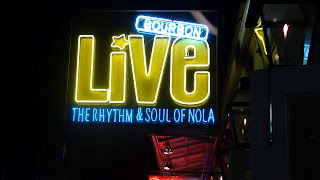When someone says ”What happens in Vegas
stays in Vegas” What comes to mine? The initial thoughts were confidentiality
or privacy. While talking with people in my local community there was
discussions surrounding major celebrities and there privacy. However the
celebrity’s weren’t the only victim’s of privacy invaded many community members
spoke out. However there has been local cases of emails hacking and peeping
toms that videotaping through windows.
|
|
Shereen Williams at a Eagles VIP
event keep every confidential No videos camera were allowed on the
players to keep their plays confidential
|
A Middletown, Delaware 40-year-old
woman states that, “My personal email was hacked and all identifying
information was stolen. My money was stolen out of her account and credit cards
were opened her name. I felt totally violated. When I became aware that someone
was invading privacy notified the local police depart and filed charges. I
became very familiar with the tort for invasion of privacy laws and identify
theft laws in Delaware. I currently run a class at the local YMCA that Protect
Your Identity” She stated the things I have done to protect myself are, I
currently change my email passwords every three months and I place uppercase
and lowercase letters in her password this cause its harder to break”.
|
|
Shereen Williams changing all
passwords to emails and social web sites
|
The state of Delaware
recognizes the common-law tort for invasion of privacy, which provides that one
who invades the right of privacy of another is subject to liability for the
resulting harm to the interests of the other person. Four separate claims
compose this tort, and Delaware recognizes all four claims (Beckett v.
Trice, C.A. No. 92C-08-029 (Del. Super. Ct. 1994).
The right of privacy is invaded by:
• Unreasonable intrusions upon the
seclusion of others;
• Appropriating another name or
likeness;
• Giving unreasonable publicity to
another private life; or
• Using publicity that unreasonably
places another in a false light before the public.
State law prohibits the unauthorized
interception of wire, oral, and electronic communications, with certain specific
exceptions. Anyone who willfully commits an interception, attempts to commit an
interception, or procures another person to commit or attempt an interception
of any wire, oral, or electronic communication may be punished with fines and
imprisonment. The law further prohibits disclosing or using the communication
that was obtained illegally.
Exceptions. Although there are several
exceptions to this law, the exceptions most relevant to employers are the
consent exception and the “ordinary course of business” exception. Under the
consent exception, it is lawful to intercept a communication in which the
person is a party to the communication, or one of the parties to the
communication has given prior consent to the interception. To fall within the
ordinary course of business exception, the employer must be a provider of a
wire or electronic communications service.
 |
|
|
Reality Star Shanda Freemen left and
Shereen Williams right discussing the rights to her promotional video be posted on a blog
|
|
Geragos a celebrity attorney, "he has helped to settle a $2.5 million
lawsuit against the owner of a charter jet company that is now defunct. The
company reportedly recorded Geragos and his attorney partner along with Michael
Jackson as the group flew from Las Vegas to Santa Barbara. The flight occurred
when Jackson was going to turn himself in because of child molestation charges.
In 2010, a $20 million award to the attorneys was thrown out by an appeals
court, which then offered to give the attorneys $750,000. Kabateck said that he
was happy with the amount of the settlement and would strongly work to collect
all of it. He also said that the amount of the settlement would hopefully send
a strong message to others trying to do such a thing".
"Borer and one of
his associates pled guilty to conspiracy almost two years ago in the case of
videotaping Jackson and his two lawyers. Jackson was later acquitted of the 14
charges against him in the case. The lawyer for Borer, Hirschbaum, claims that
Geragos and Harris did not have any damages that could be proven. Instead, the
settlement helped all involve stay away from a three or four day retrial of the
case. The invasion of privacy lawsuit was filed against Borer and XtraJet in
November of 2003 by Geragos, Harris and Jackson. Jackson removed himself as a
plaintiff in April of 2005”.
The Delaware laws are very clear when it come to invasion of
privacy. In the Jackson case it proved that Mr. Jackson was truly a victim of
invasion of privacy. This predator was exposed and tried and fined heavily.
This case should be a model to all present to all journalists. This action will
cause journalist to think and ask for permission before you posting
questionable footage.











